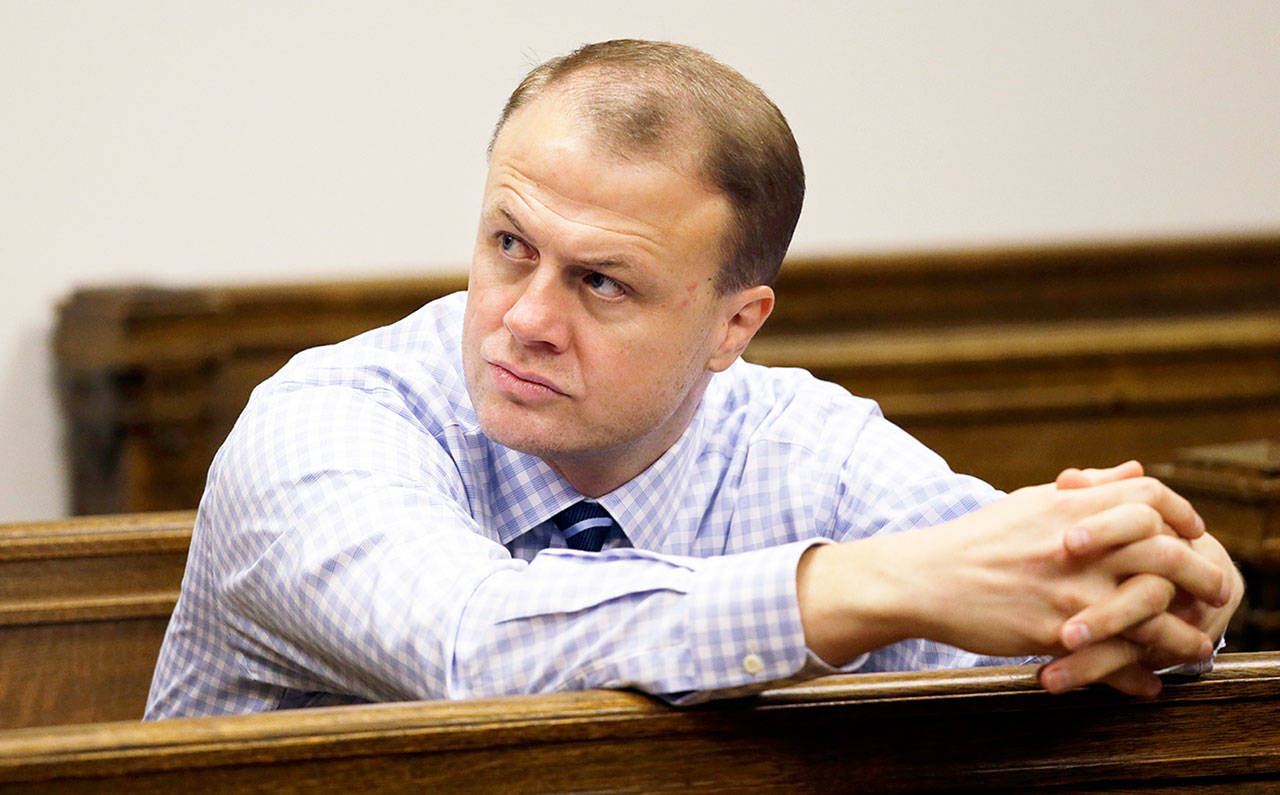MUKILTEO — This could have been a revealing month in the state’s legal pursuit of anti-tax crusader Tim Eyman — had he not filed for bankruptcy.
The Mukilteo resident filed for Chapter 11 bankruptcy Nov. 28 to protect personal assets as he defends himself against allegations of violating state campaign finance laws. He denies wrongdoing.
The move stopped state attorneys in their tracks in the high-profile case. Under federal law, a bankruptcy filing triggers an automatic stay of civil proceedings against a debtor.
They had to cancel a deposition with Eyman. And they canceled depositions of brothers Mike and Jack Fagan, Eyman’s longtime political partners, which had been slated for Dec. 6 in Spokane, according to public records obtained by The Daily Herald. Developers Kemper Freeman and Clyde Holland and investor Ken Fisher — three of the largest donors to Eyman-led initiatives — also had been lined up for depositions in December, records show.
On Jan. 4, the state will try to get the case back on track when it asks U.S. Bankruptcy Court Judge Marc L. Barreca in Seattle to let it continue the civil lawsuit, filed in March 2017 by Attorney General Bob Ferguson.
The suit accuses Eyman of secretly moving money between two initiative campaigns in 2012 and receiving $308,000 in kickbacks from a signature-gathering firm. It seeks $1.8 million in penalties plus reimbursement of the funds Eyman received from the vendor.
In a legal filing, state attorneys contend a provision in federal law allows civil actions such as theirs to proceed when the intent is to enforce laws rather than collect unpaid debts.
“Bankruptcy court is not a haven for wrongdoers,” Assistant Attorney General Linda Dalton argued in a motion filed Dec. 13.
“Here, the state seeks to penalize Eyman for his violations of state campaign finance law and limit his future role in handling money associated with political contributions because of his conduct in diverting those funds for his own personal use and concealing his fraud from the public,” she wrote. “Eyman’s stalling tactics fail because state enforcement actions like this one are specifically exempted from the automatic stay provision.”
The focus of the state’s legal argument is a paragraph of Section 362 in the U.S. Code for Chapter 11 bankruptcies.
This section begins by listing the types of actions against a debtor that are automatically stayed. The state zeroes in on the fourth subsection, which states in broad terms that civil actions are exempt if they involve enforcing a government’s use of “police and regulatory power.”
“The state’s goal is to protect the welfare of Washington residents by promoting public confidence in the fairness of Washington elections and ensuring that the public interest is fully protected,” Dalton wrote in the motion. “To delay the state’s case subject to a stay in bankruptcy would frustrate the purpose of the police and regulatory exception.”
Eyman’s attorneys must file a response with the court by Friday. They declined to discuss the case before then.
But Larry Feinstein, Eyman’s bankruptcy attorney, did touch on the strategy with a wry Dec. 4 email to Dalton.
The veteran lawyer acknowledged he was “not up to speed” on the civil lawsuit but was “puzzled” by the state’s approach, noting the provision it relies on contains references to exempting governments that enforce international bans on producing and using chemical weapons.
“Perhaps I am missing something, but I thought the actions against Mr. Eyman have to do with campaign finance laws of the state and not about Mr. Eyman producing, stockpiling and using chemical weapons … ” he wrote. “Perhaps his politics and political action committees are toxic to the state, but still, I think that is a bit of a stretch.”
A trial date is set for January 2020.
Jerry Cornfield: 360-352-8623; jcornfield@herald net.com. Twitter: @dospueblos.
Talk to us
> Give us your news tips.
> Send us a letter to the editor.
> More Herald contact information.

























